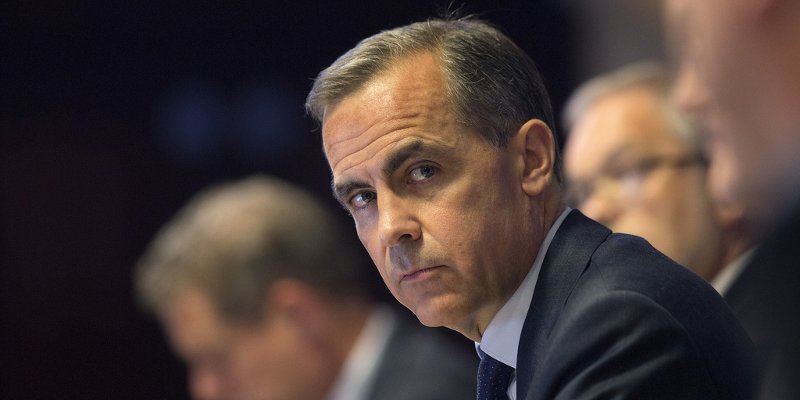Speaking at a Treasury Select Committee Bank of England governor Mark Carney took questions on Brexit and his successor.

Mark Carney, the governor of the Bank of England, has said the central bank could cut interest rates close to zero if Brexit, either with a deal or without, leads to economic turmoil.
Answering questions from the Treasury Select Committee Carney (pictured) warned that a no-deal Brexit is likely to result in business closures and job losses but said the BoE did have some means of helping the economy.
One such way would be by bringing interest rates “close to but slightly above zero”.
But the BoE supremo was clear that any cut would need to be passed on to customers and not used to cushion financial institutions.
He added: “We can lower them [rates] and we can make sure that [cut] is passed on to households.”
Carney made his claim at a time when there is just two weeks left on the governments planned exit date of 31 October.
At present the prospect of a deal appears to be unlikely but the EU’s chief negotiator Michel Barnier has said a deal is still possible albeit looking “more and more difficult”.
This led Carney to warn on the potential impact of no-deal. He said: “There are likely to be circumstances in an abrupt no-deal Brexit where certain businesses become uneconomic and they close.
“And so for the person who runs that business or works for that business or has someone in their family who works for that business, they will be directly affected … because of a loss of a market or potentially shorter-term disruption.”
Successor
Carney also took questions from the public, including via Twitter. When quizzed about his successor and the plans around the appointment he echoed Sajid Javid’s recent comments that the process is on track.
However he appeared to confirm that no successor had been chosen as of yet adding that parliament was “quite occupied with some urgent affairs of state”.
Talking of his potential successor he added: “Whereas I was appointed several months before I took office, there are examples, including of the ECB, where the most recent president, Mario Draghi was appointed a few weeks in advance of taking office.”
“[The Bank of England] will have a highly qualified governor, a more highly qualified governor, in the new year.
“The government and this process has encouraged a very wide range of high quality people to apply. It’s afforded a good set of options for the government to consider.”



